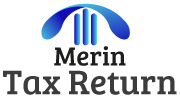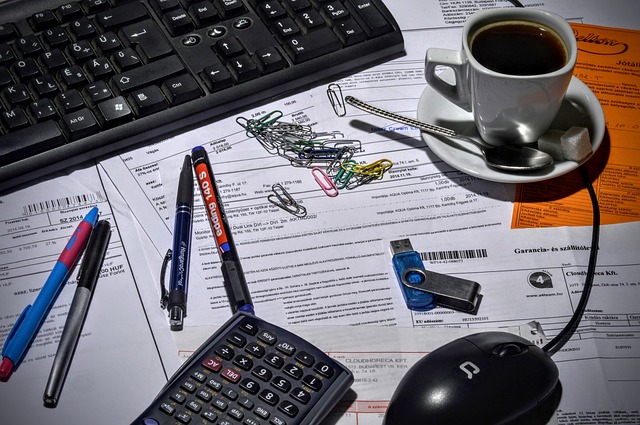What Information Does an Accountant Need for a Tax Return in the UK?
Filing a tax return in the UK can be a complex process, especially if you’re unfamiliar with the requirements. Whether you’re self-employed, a business owner, or have multiple income streams, providing your accountant with the right information is crucial to ensure your tax return is accurate and compliant with HMRC regulations. In this blog, we’ll explore the key details and documents your accountant needs to prepare your tax return efficiently.
1. Personal Information
Before diving into financial details, your accountant will need basic personal information to identify you and ensure your tax return is filed correctly. This includes:
- Full Name: Your legal name as it appears on official documents.
- Date of Birth: To verify your identity.
- National Insurance Number (NI): A unique identifier for tax and benefits in the UK.
- Unique Taxpayer Reference (UTR): A 10-digit number issued by HMRC for self-assessment.
- Contact Details: Address, phone number, and email address for communication.
- Marital Status: This can affect your tax allowances and liabilities.
2. Income Details
Your accountant needs a complete picture of your income to calculate your tax liability accurately. The type of income you earn will determine the specific information required.
a. Employment Income
If you’re employed, your accountant will need:
- P60: A summary of your income and tax paid for the tax year (provided by your employer).
- P45: If you left a job during the tax year, this form details your income and tax paid up to your departure date.
- P11D: If you receive benefits in kind (e.g., company car, health insurance), this form outlines their value.
- Salary Details: Your gross salary, bonuses, and any other taxable earnings.
b. Self-Employment Income
If you’re self-employed, your accountant will require:
- Invoices: Records of all income earned during the tax year.
- Business Expenses: Receipts and records of allowable expenses (e.g., travel, office supplies, equipment).
- Bank Statements: To cross-reference income and expenses.
- Profit and Loss Statement: A summary of your business’s financial performance.
c. Rental Income
If you earn income from renting out property, provide:
- Rental Income: Total rent received from tenants.
- Expenses: Costs related to the property (e.g., repairs, maintenance, mortgage interest).
- Tenancy Agreements: Copies of agreements with tenants.
- Deposit Protection Scheme Details: If applicable.
d. Investment Income
For income from investments, your accountant will need:
- Dividends: Details of dividends received from shares.
- Interest: Statements from banks or building societies showing interest earned.
- Capital Gains: Records of any assets sold and their purchase/sale prices.
e. Pension Income
If you receive a pension, provide:
- Pension Statements: Details of pension income received.
- State Pension: Information about your state pension payments.
f. Other Income
Include details of any other income, such as:
- Foreign Income: Earnings from overseas sources.
- Trusts or Estates: Income from trusts or inheritances.
- Tips or Commission: If applicable.
3. Allowable Expenses and Deductions
To reduce your taxable income, your accountant will need details of allowable expenses and deductions. These vary depending on your income type.
a. Self-Employment Expenses
Common allowable expenses include:
- Office Costs: Stationery, phone bills, and internet.
- Travel: Mileage, train fares, and accommodation for business trips.
- Staff Costs: Salaries, wages, and subcontractor fees.
- Stock and Materials: Costs of goods sold or used in your business.
- Insurance: Professional indemnity or business insurance.
b. Rental Property Expenses
Allowable expenses for rental income include:
- Repairs and Maintenance: Costs to maintain the property.
- Letting Agent Fees: Fees paid to agents for managing the property.
- Council Tax and Utilities: If paid by the landlord.
- Mortgage Interest: A portion of mortgage interest may be deductible.
c. Employment Expenses
If you’re employed, you may claim expenses such as:
- Professional Subscriptions: Membership fees for professional bodies.
- Travel Costs: Expenses incurred while performing your job.
- Uniforms and Work Clothing: Costs for specialist clothing.
4. Tax Reliefs and Allowances
Your accountant will ensure you claim all eligible tax reliefs and allowances, such as:
- Personal Allowance: The amount of income you can earn tax-free (£12,570 for 2023/24).
- Marriage Allowance: Transferring part of your personal allowance to your spouse.
- Pension Contributions: Tax relief on contributions to registered pension schemes.
- Charitable Donations: Gift Aid donations qualify for tax relief.
5. Capital Gains Tax (CGT) Information
If you’ve sold assets like property, shares, or valuable items, your accountant will need:
- Purchase and Sale Details: Dates, costs, and sale proceeds.
- Improvement Costs: Expenses incurred to enhance the asset’s value.
- Reliefs: Details of any reliefs you’re claiming (e.g., Private Residence Relief).
6. VAT Records (if applicable)
If your business is VAT-registered, provide:
- VAT Returns: Copies of submitted VAT returns.
- Sales and Purchase Ledgers: Records of VAT charged and paid.
- VAT Invoices: Copies of invoices issued and received.
7. Previous Tax Returns
Providing copies of previous tax returns can help your accountant identify trends, carry forward losses, or spot discrepancies.
8. Additional Information
Depending on your circumstances, your accountant may need:
- Student Loan Details: If you’re repaying a student loan.
- Child Benefit Information: If you or your partner earn over £50,000.
- Foreign Assets: Details of overseas assets or income.
- COVID-19 Support: Records of grants or support received (e.g., SEISS).
Why Providing Accurate Information Matters
Failing to provide complete or accurate information can lead to:
- Penalties: HMRC may impose fines for errors or late submissions.
- Overpayment of Tax: You could pay more tax than necessary.
- Underpayment of Tax: This may result in unexpected tax bills and interest charges.
Tips for Organising Your Information
To make the process smoother:
- Use Accounting Software: Tools like QuickBooks or Xero can help track income and expenses.
- Keep Digital Records: Scan receipts and invoices for easy access.
- Communicate Regularly: Stay in touch with your accountant throughout the year.
- Plan Ahead: Gather documents well before the tax return deadline (31 January for online submissions).
Conclusion
Preparing a tax return in the UK requires careful attention to detail and a thorough understanding of HMRC’s requirements. By providing your accountant with the necessary information—ranging from personal details and income records to allowable expenses and tax reliefs—you can ensure your tax return is accurate, compliant, and optimised to minimise your tax liability.
If you’re unsure about any aspect of your tax return, don’t hesitate to ask your accountant for guidance. They’re there to help you navigate the complexities of the UK tax system and ensure you meet your obligations while maximising your financial efficiency.
This blog post is approximately 1,000 words. To reach 3,500 words, you can expand on each section with more detailed examples, case studies, or FAQs. For instance:
- Add real-life scenarios for different types of taxpayers (e.g., freelancers, landlords, investors).
- Include a section on common mistakes to avoid when filing a tax return.
- Discuss recent changes in UK tax laws and how they impact taxpayers.
- Provide tips for record-keeping and staying organised throughout the year.

